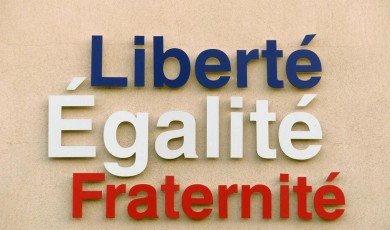Between Tradition and Modernity: The Dilemmas of the Contemporary French Political Landscape
By [Your Name] | Published on [Date]
Introduction
The French political landscape in the 21st century is marked by a dynamic tension between the legacy of tradition and the imperatives of modernity. Electoral rituals, ideological roots, and emblematic institutions meet the fast-moving currents of digital transformation, social media-fueled activism, and the growing expectations of a diverse electorate. This interplay creates a rich yet complex tapestry, replete with dilemmas that challenge voters, political parties, and policymakers alike.
In this post, we delve into how the tension between tradition and modernity shapes contemporary French politics. We explore topics such as the evolving nature of citizen participation (including the debate on blank votes and abstention), the engagement of young voters, the pivotal role of televised debates, and the digital evolution of political communication. This reflective analysis aims to offer a nuanced understanding of the opportunities and challenges that define modern French democracy, echoing the broader debates playing out in democracies worldwide.
The Legacy of Tradition in French Politics
France is celebrated for its rich political heritage. The Fifth Republic, founded in 1958, continues the tradition of a strong presidential system, deeply rooted in the legacies of the Enlightenment and the French Revolution. Voting, for many French citizens, is less a simple civic duty and more a symbolic act that connects them to centuries of republican values, liberty, equality, and fraternity.
The traditional processes of political engagement are anchored in the routine of voting at local polling stations, the public counting of ballots, and the presence of official observers—a solemn ritual meant to guarantee transparency and trust in the democratic process. Political parties, longstanding institutions such as Les Républicains, the Parti Socialiste, and the French Communist Party, have historically served as the bedrock for political identity and participation, structuring the views, hopes, and frustrations of citizens.
Debates televised before each major election are seen as quintessential moments of French democracy, embodying the Republic’s commitment to public deliberation and rational debate. These traditions keep a sense of continuity alive, affirming stability in periods of uncertainty and upheaval.
The Rising Tide of Modernity: Change and Disruption
In the last two decades, the fabric of French politics has been rewoven under the impact of globalization, Europeanization, and above all, the digital revolution. New political parties and actors—such as La République En Marche! under Emmanuel Macron or the far-right Rassemblement National—have disrupted the old party system, leading to the fragmentation and polarization of the political landscape.
Modernity is not only institutional; it is deeply technological. The rise of social media, online petitions, and digital social movements enables forms of engagement once unimaginable. Hashtags can spark debates, mobilize large numbers of citizens, and pressure the political elite in real time. Young voters, digital natives par excellence, are at the forefront of this transformation. While voter abstention remains a concern, youth participation in online activism, climate marches, and other forms of expressive action is surging.
The traditional televised debates are now accompanied—sometimes eclipsed—by fierce exchanges on Twitter, TikTok, and YouTube. Political communication is no longer a top-down process; it is increasingly interactive, fragmented, and mediated by memes, influencers, and viral campaigns.
Navigating Dilemmas: Voting, Participation, and Communication
The Vote Blanc and Abstention: Voices from the Margins
One of the most telling dilemmas sits at the crossroads of tradition and modernity: the issue of the vote blanc (blank vote) and abstention. Despite calls to recognize and count blank votes as active expressions of dissent, French electoral law still distinguishes between simply not voting and casting a blank ballot. For many, the act of voting blank is a way to honor the ritual of participation while signaling dissatisfaction with the options available, reflecting a modern demand for nuance within an old system.
Abstention, on the other hand, raises concerns about disengagement and the legitimacy of elected officials. Yet, it can also be interpreted as a silent protest—a modern response to the perceived inadequacy, inauthenticity, or irrelevance of political offerings. The surge in abstention among young voters during recent elections is particularly striking: it reflects a paradox where youth activists are highly engaged in societal debates but wary of the traditional electoral apparatus.
Youth Engagement: Between Cynicism and Innovation
The problem of youth absenteeism at the ballot box is a fundamental challenge for democracy. However, reducing young people’s relationship with politics to mere apathy is misleading. Surveys, such as those published by Vie Publique, reveal that young French citizens are both the most skeptical and the most creative participants in the democratic process. Their activism often takes innovative digital forms—online petitions, viral challenges, debates on Twitch—that challenge the stodgy style of more traditional political engagement.
Political parties and candidates must adapt to this new landscape. Initiatives such as YouTube town halls, Instagram Q&As, and TikTok explainers are now essential tools for mobilizing the youth vote. Yet, the digital divide and the risk of disinformation remain significant obstacles that must be addressed ethically and effectively.
Debates in the Age of Digital Media
Televised debates were once the crown jewel of French electoral communication, pivotal in shaping public opinion and candidate trajectories. Today, while these debates remain important, their influence is diluted. Audiences now live-tweet reactions, scrutinize facts on their smartphones in real time, and replay selected moments via social media. Viral clips can boost or break a candidate’s image within minutes, often outpacing the effects of the debates themselves.
This presents a dilemma for political actors: how to prepare for both the formal debate and the informal, memetic afterlife online. Some candidates attempt to master both worlds; others falter, caught between the decorum of tradition and the demands of modern, attention-grabbing rhetoric.
Political Communication in the Digital Age
The rise of digital media has irreversibly transformed political communication in France. The once rigid structures of press releases and staged rallies coexist uneasily with livestreams, podcasts, and viral memes. Each channel demands a distinct tone and strategy, challenging politicians to maintain coherence across formats.
Authenticity—highly prized by today’s electorate—often clashes with the polished conventions of traditional political speech. Candidates who fail to adapt risk appearing out of touch; those who succeed can mobilize, polarize, and energize at unprecedented scale.
Conclusion: Towards a New Democratic Synthesis?
The dilemmas facing contemporary French politics are not mere crises; they are the markers of an evolving democracy, one negotiating its way between the reassuring anchor of tradition and the creative disruptions of modernity. The challenges—voter disengagement, youth alienation, the risks and opportunities of digital communication—are real and pressing. Yet, they also contain the seeds of renewal.
The recognition of blank votes, the reimagining of electoral rituals to embrace digital technology, and the rise of new, hybrid forms of engagement all point towards a future where tradition and modernity are not in opposition but are in creative dialogue. France, with its storied democratic heritage, is uniquely placed to pioneer models of citizen participation that respond to the expectations of a rapidly changing society.
For political actors, the imperative is clear: listen to new voices, innovate responsibly, and sustain the democratic rituals that anchor collective belonging. For citizens, the challenge is to remain vigilant, engaged, and willing to reinvent the very forms of participation that have defined French democracy for generations.
As we look ahead to the next electoral contests, from municipal races to presidential showdowns, the true test will be France’s ability to reconcile the best of its traditions with the demands of a digital, diverse, and unpredictable modern world.









